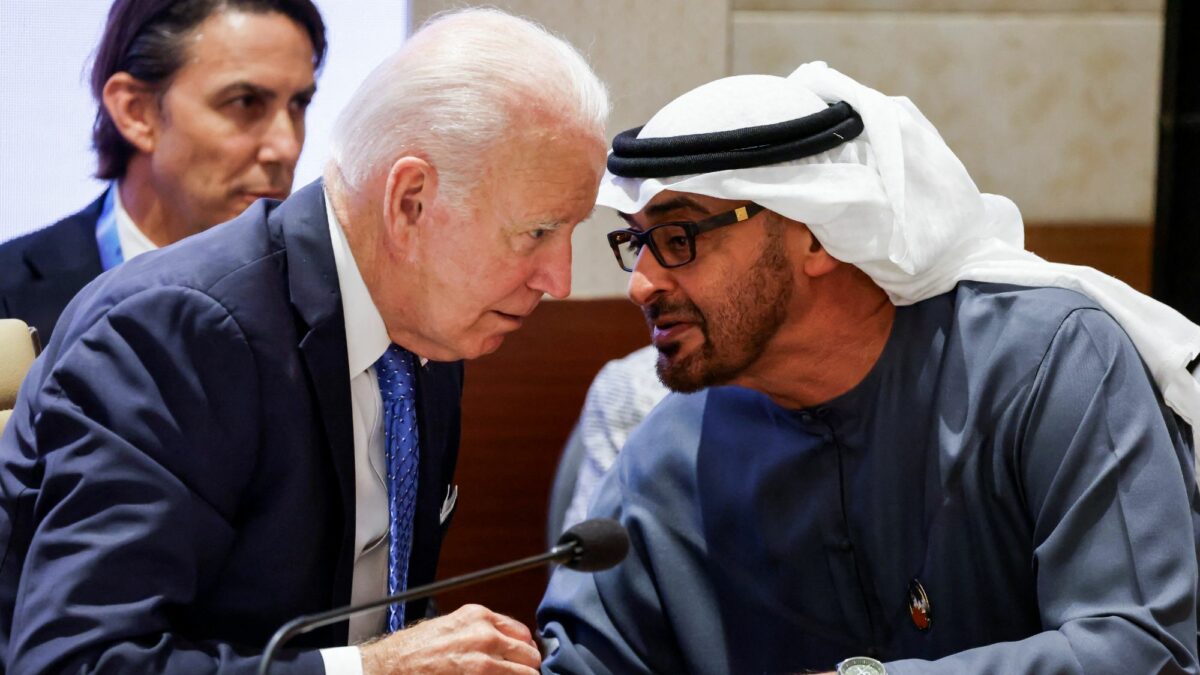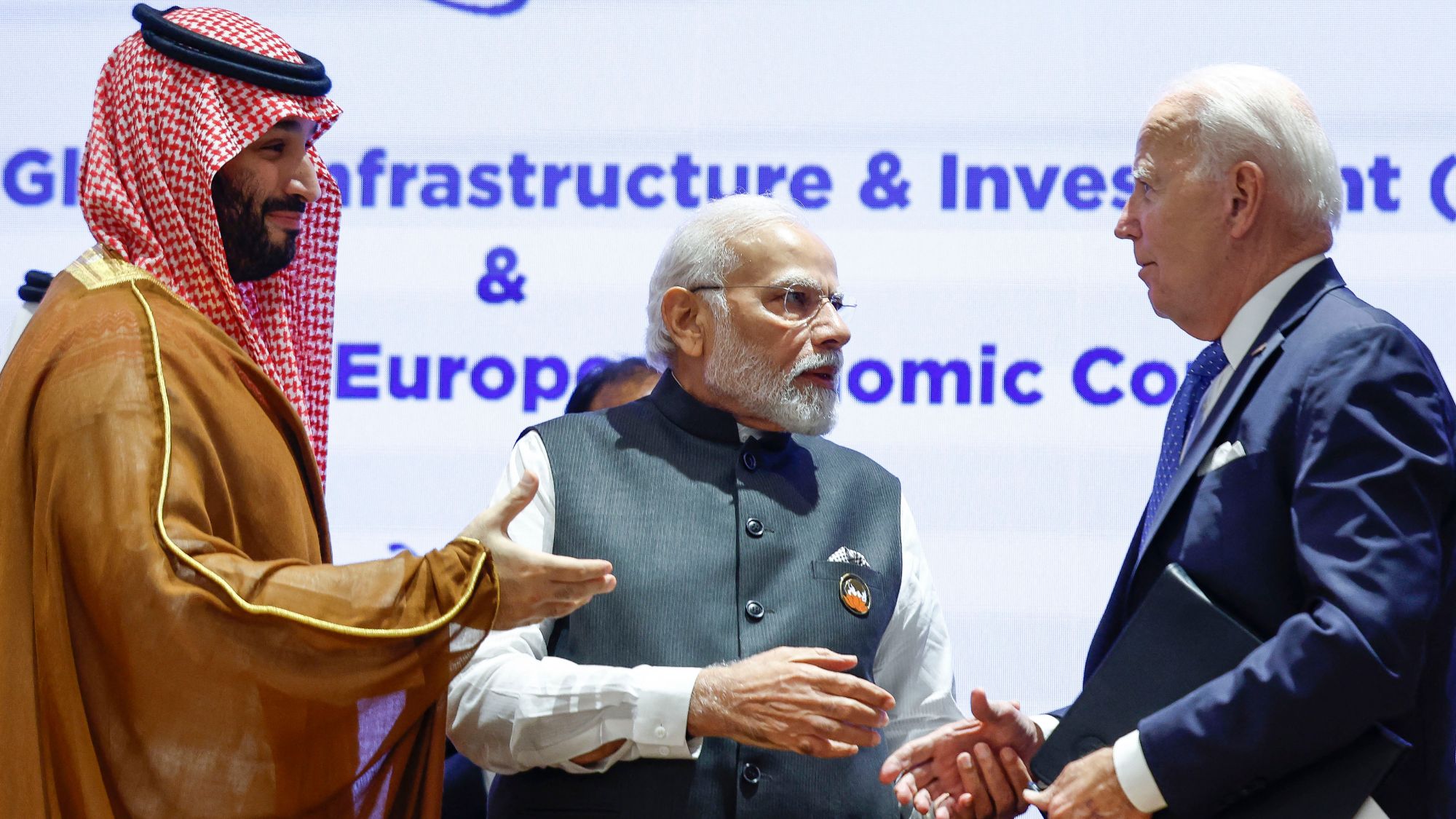New Delhi, India – G20 leaders glossed over profound disagreements on the Ukraine war and climate change on Saturday, sidestepping direct censure of Moscow and any tangible commitment to eliminate polluting fossil fuels.
The group, which includes Russia and several staunch Ukraine supporters, found it challenging to reach a consensus, especially regarding the 18-month-old invasion. However, to avoid a significant diplomatic fiasco, India, the host nation, urged members to finalize a joint statement during the two-day summit in New Delhi.
Despite Vladimir Putin’s absence from the summit to evade political condemnation and potential arrest for war crimes, the G20 criticized the use of force for territorial advantage but stopped short of directly naming Russia.
Also Read Data, rail, electricity key focus as G20 eyes EU-Middle East-India trade plan
“Differing views and assessments of the situation emerged,” the leaders’ statement noted.
European countries and the U.S. had advocated for the G20 to maintain its prior denunciation of a war that has triggered global food and fuel price surges. But with India, a long-standing Russian ally, chairing the G20, it seems Ukraine’s allies’ efforts were in vain.
Still, a senior White House official expressed satisfaction with the result. “From our perspective, it’s commendable,” U.S. National Security Advisor Jake Sullivan stated. He highlighted the G20’s stance against the use of force for territorial gains and its agreement that deploying nuclear weapons is unacceptable.
Climate compromises
On the climate front, consensus was minimal. Given the presence of major fossil fuel producers and coal-reliant countries, there was no unanimous commitment to eradicate these polluting fuels, a step the United Nations had labeled “essential” just a day prior for achieving a net-zero target.
Also Read African Union formally joins G20 at Delhi summit
Instead, G20 nations vowed to triple renewable energy sources by 2030 and only “phase down” coal “based on national circumstances.”
The G20 represents 85 percent of the global GDP and a similar percentage of global greenhouse gas emissions, making its actions pivotal for genuine environmental progress.
Amid these discussions, the European Union’s climate monitor declared this year as potentially the hottest in recorded history. Brazilian President Luiz Inacio Lula da Silva termed the situation an “unprecedented climate emergency” on Saturday.
Also Read Saudi Crown Prince arrives in India for G20 summit
Upon finalizing the agreement, Indian Prime Minister Narendra Modi expressed gratitude to the leaders for their diligence and ceremoniously adopted the declaration with a gavel strike.
Modi, who views the summit as a testament to India’s diplomatic maturity, has leveraged it to enhance his domestic reputation before next year’s elections.
In a significant move, the African Union recently joined the G20, amplifying the continent’s representation. “With everyone’s approval, I request the African Union head to take his seat as a permanent G20 member,” Modi announced, dubbing the expanded group a “people’s G20.”
The African Union comprises 55 nations, though six are currently suspended due to military rule. Collectively, they represent a GDP of $3 trillion and a population of approximately 1.4 billion.

“We anticipate further promoting our global aspirations using the G20 platform,” Nigerian President Bola Ahmed Tinubu, a summit attendee, shared on X, previously known as Twitter.
Conceived amid the 2008 financial crisis, the G20 was intended to oversee the global economy. However, achieving consensus has become increasingly challenging.
The group’s very relevance was questioned before the summit, especially with Chinese President Xi Jinping’s decision to remain in China, a move perceived as an intentional slight.
Infrastructure initiative
Europe, the Middle East, and India are set to introduce plans to further integrate three regions that constitute about a third of the global economy. These plans present an alternative to China’s extensive global infrastructure investments.
The US, Saudi Arabia, the EU, the United Arab Emirates, and other nations will sign an agreement on the G20’s sidelines to explore this initiative, officials confirmed.
This agreement aligns with the US’s active engagement with Riyadh, a significant oil producer and security ally, as it promotes the normalization of Saudi-Israeli relations. The initiative encompasses data, rail, electricity, and hydrogen pipeline connections, as EU officials informed AFP.








